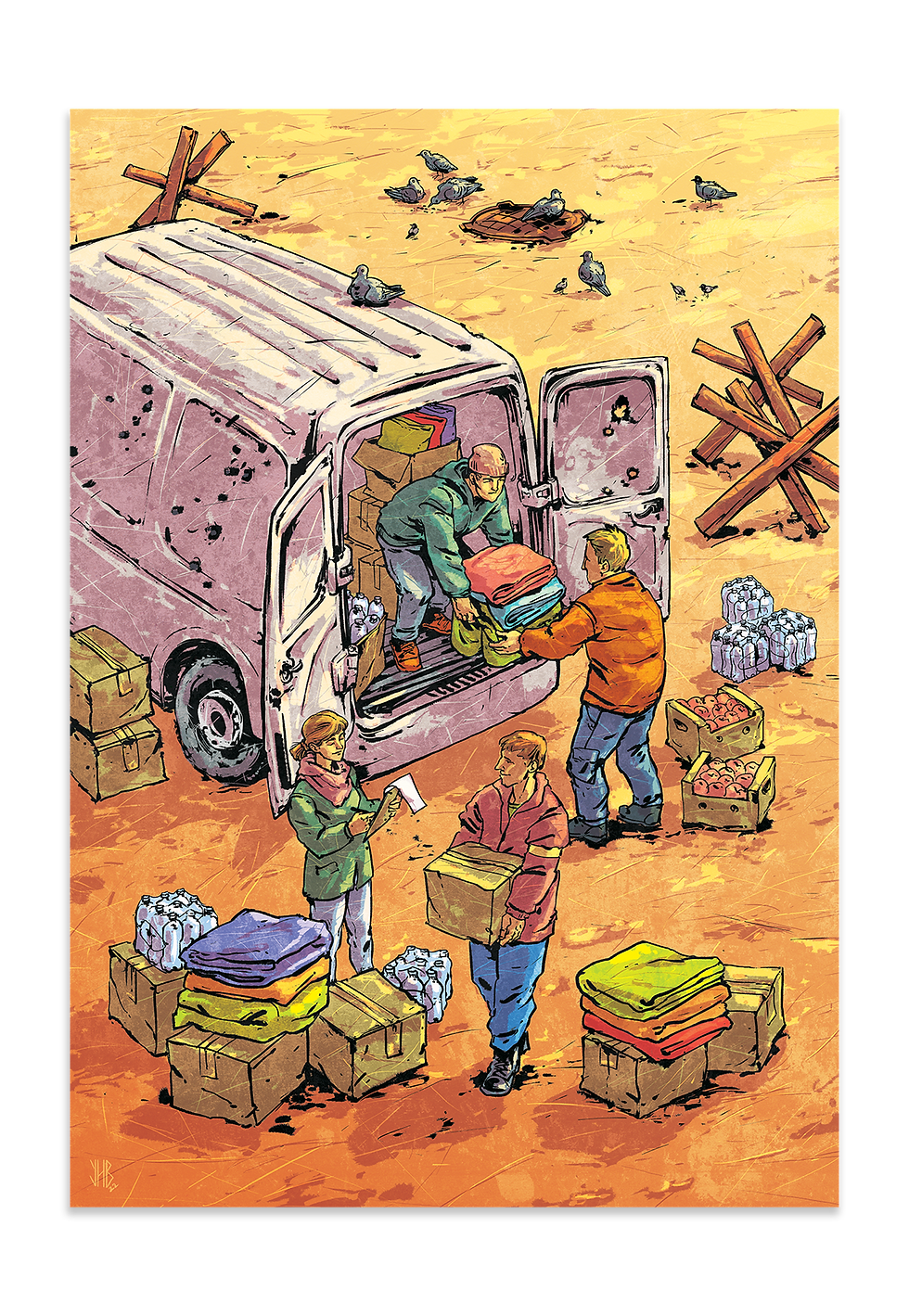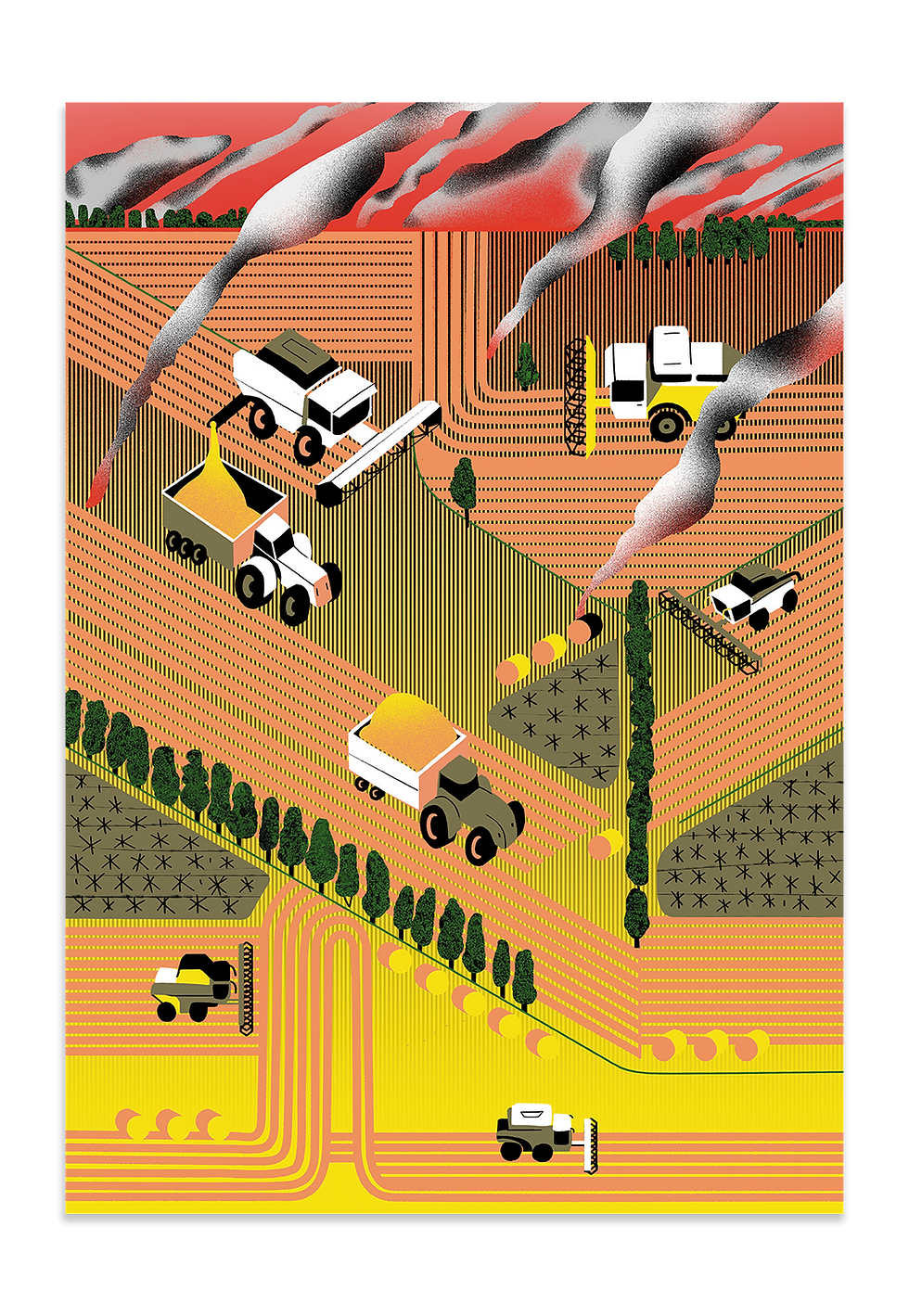Shliakh-dorizhenka children folk club
- Pictoric

- Nov 11, 2022
- 2 min read
Story and photos: Mariia Shevchenko
Illustration: #JuliaTveritina

//
In the fall of 2021, Mariia Shevchenko got a job at a school in Makariv, a village not far from Kyiv in Bucha Raion. The young woman led her folk club Shliakh-dorizhenka at school, where children could sing and dance. The team held the last rehearsal on February 20, the last weekend before the full-scale russian invasion of Ukraine. So, the lives of all school children have changed in just four days.
Part of the village was under occupation; the russians fired upon the part of it. The children left Makariv with their families. Mariia and her younger brothers (also members of Shliakh-dorizhenka) were the last ones to leave Makariv. All the children survived, but several students lost their parents. Almost all the families had their houses burnt down or badly damaged.
Before Mariia managed to leave, she stayed in Makariv without communication and didn't know what was happening to her friends, or where they were. No one planned to leave the city or country, but everyone had to settle in the west of Ukraine, Poland, France, or the Czech Republic. Mariia and her family settled in Germany. It was difficult to remember what had happened in the first weeks after the evacuation. No one had the strength to sing. However, in mid-April, Mariia dared to ask the children if they wanted to help online.

Everyone happily agreed. The students needed an opportunity to distract themselves from memories and news. Senior students also felt guilty for fleeing to safe places when dozens and hundreds of people die daily in Ukraine. So Mariia tried to motivate them: no doubt, they cannot fight at the moment, but they can do what they are good at—sing.
The team started working online and decided to record a video. First, each child had to sing one verse of a Vesnianka (a traditional spring dance song in Ukraine), after which Mariia edited everything into one song. The students had a familiar task and a short-term goal, which helped them to get out of their depressed state.
However, online classes could only partially replace the usual group meetings. During half a year of training, the participants of Shliah-dorizhenka became close. So, Mariia wanted to reunite the team live and decided to organize Kupala Night (a traditional Slavic holiday) in her village in Germany. Mariia's family managed to find the money for a small festival and pay for the children's travel, accommodation, and food. At the end of June, everyone gathered for a week-long camp, and new children (displaced persons who ended up in Germany) also joined the band. In the camp, Mariia held rehearsals every day; the children played and danced. On July 2, Ukrainians held a real Kupala Night for the German community. They collected some money in the charity box to restore the school in Makariv, as the russians destroyed the building.







Comments